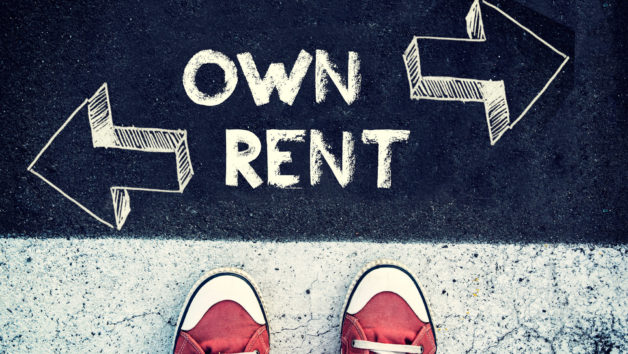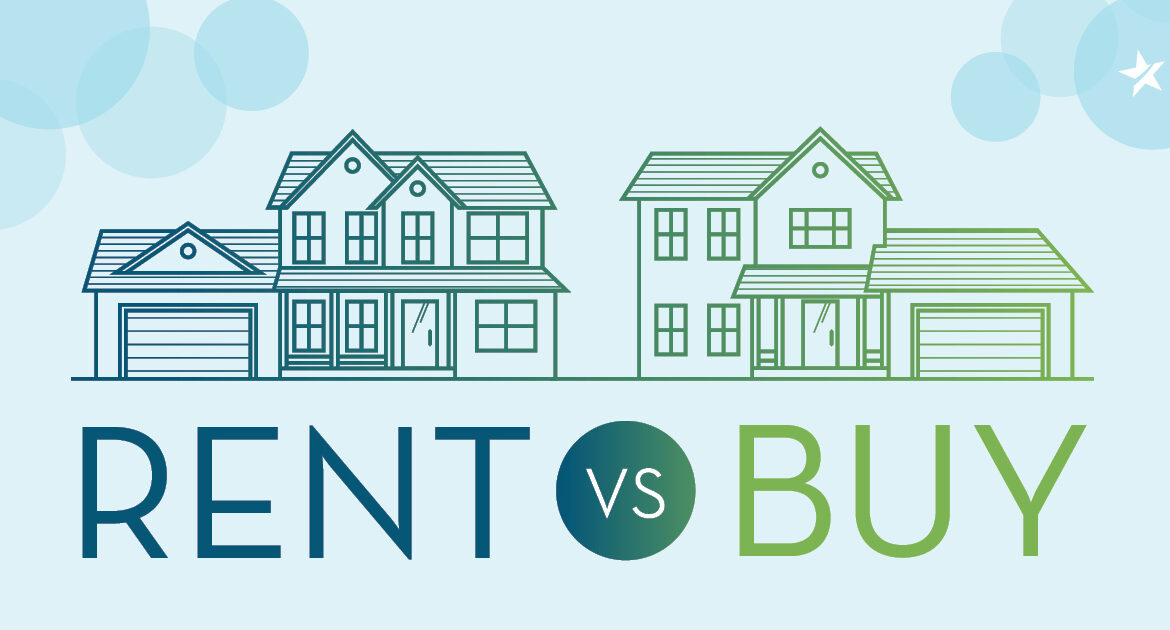
Buying versus Renting: You need to determine what will make you the happiest and what makes the most financial sense.
I have seen it asked many times on Quora whether someone should continue renting or if they should buy a home. It is certainly a sign of the times that buying a home that used to be considered a major part of the American dream, is now considered to be much more optional. Many will argue that renting is “throwing money away”, but that is not always the case. For some, renting is still a viable option, while for others settling down and owning a home may be exactly what they need.
There are arguments both for buying and for continuing to rent, depending on a potential homeowner’s individual circumstances. To help you understand these variables and evaluate your own situation, here are five important questions to consider as you make the buying versus renting decision.
- How long are you planning to stay in the same place?
How long you stay in one location has a huge impact on whether it makes more sense buying versus renting. Buying and selling a home is a very involved process with many associated costs, some of which buyers often overlook: including brokers’ fees, appraisal fees, title insurance, and mortgage origination fee. For the purchase of a $200,000 home, these fees will likely cost an additional $2,500.
A home purchase is a long term commitment. Mortgages typically last 30 years or at the very least 15 years. In the first few years, the majority of your mortgage payment is paying interest and not paying down the principal or building equity in the home. If you only stay in one location for a couple years, you won’t have built up enough equity in a purchased home to cover the costs of repeating the sales and purchase process again. The longer you live in a house, the more time you have to spread out these costs and build equity through appreciating value and regular mortgage payments.
- Is the local real estate market going to appreciate in value?
It was once believed that real estate was always going to appreciate in value. In 2007 with the collapse of the market, people realized that there is still risk in any investment. Most real estate markets have recovered since that collapse, but not every geographic region was affected the same.
Even without an imminent collapse different regions have varied risk. Housing in Detroit is cheap, but with a weak local economy there is very little chance that you will see the property appreciate over time and selling the property will be a challenge. On the other hand, in a market like Denver where the population is growing faster than the supply of homes and the local economy is strong houses have been going up an average of 10% each year.
- Is rent really throwing money away?
On the surface it may seem that a mortgage payment will be lower than a rent payment. That may be true. However, there are many other costs associated with home ownership. You need to budget for property taxes, insurance, possibly mortgage insurance if you can’t put 20% down, HOA fees, and routine maintenance. There is also the possibility of expensive repairs like appliances breaking down. HVAC issues or plumbing problems occurring. You should also be aware of the interest rate on the mortgage. If you have a lower credit score you will have a higher interest rate and will be paying a higher monthly payment and very little of that will go toward the actual equity in the home.
A common argument in favor of home buying versus renting is that owners are building equity in a valuable asset that can boost their long-term net worth. By contrast, paying a landlord rent each month seems like spending, rather than saving. Remember that housing is a necessary expense. With rent you have nothing to show for that expense, but you will have that expense either way. With a mortgage you are paying interest to a mortgage company that will never be recovered.
Keep in mind that one of the best benefits of buying versus renting is that your payment isn’t going to change. Depending on the type of mortgage, once you sign your monthly payment is locked in unless you refinance down the line. On the other hand apartment rents tend to increase over time typically by 3-5% annually.
- How much will you save on taxes?
Home buyers assume that the additional costs of home ownership will be offset by tax savings generated by the mortgage interest deduction. In previous years the standard deduction for married couples was about $12,000. In order to get the deduction, you have to itemize and the mortgage interest amount has to be greater than the standard deduction amount. Now with the new tax law, the Standard deduction has been doubled and the mortgage interest deduction limit has been reduced so it is even less likely that you will see that benefit. Even if you purchase an expensive house and expect to have a large monthly mortgage payment, there’s another consideration: Your tax benefit may decrease each year. A typical mortgage amortization schedule dedicates the majority of the monthly payment to interest in the first several years of the loan.
- What is your goal in buying versus renting a home?
Owning your own home is not an investment in and of itself unless you plan for it to be the last place you live. If this is your dream home and you plan to retire and spend the rest of your days living in this new home then it is a great decision. After 30 or so years you will only have to worry about the additional costs like taxes, insurance and maintenance. The house should not be your only investment. Houses are not liquid assets. There is no guarantee that it will appreciate in value. If someday you had to sell the home and live off the sale, would you have enough money to live on?
Don’t purchase a home that you can barely afford and neglect to save for retirement.
Financial aspects aren’t the only reasons to buying versus renting. Maybe you really want a yard for kids or a dog. Maybe the schools are better near the houses in your area. On the other side maybe you hate home maintenance and living in an apartment gives you the convenience of having on call staff to fix things for you. Maybe you want to live downtown to be closer to work and there are more apartment options than homes.
There is no one right answer when considering buying versus renting. There are pros and cons to both. Decide what is most important to you first then purse the best option that will give you the most satisfaction and make the best financial sense. One tool that can help is using the buying versus renting calculator below.



Im pretty pleased to find this great site. I need to to thank you for ones time for this particularly fantastic read!! I definitely loved every little bit of it and I have you saved as a favorite to see new stuff on your blog.